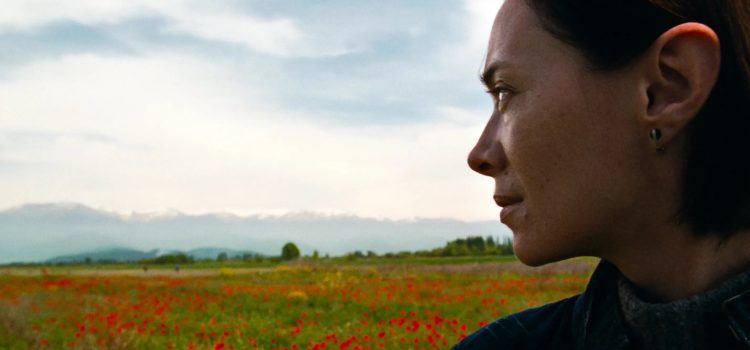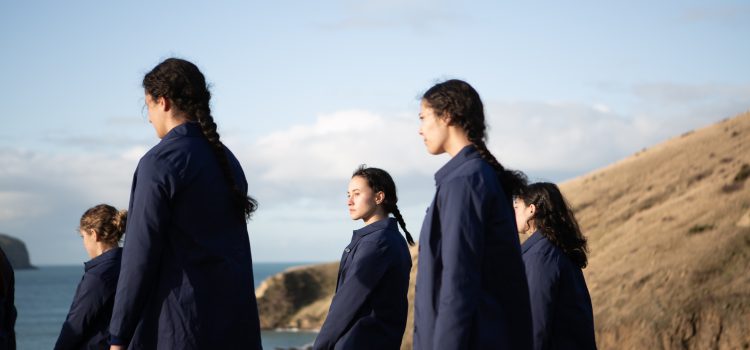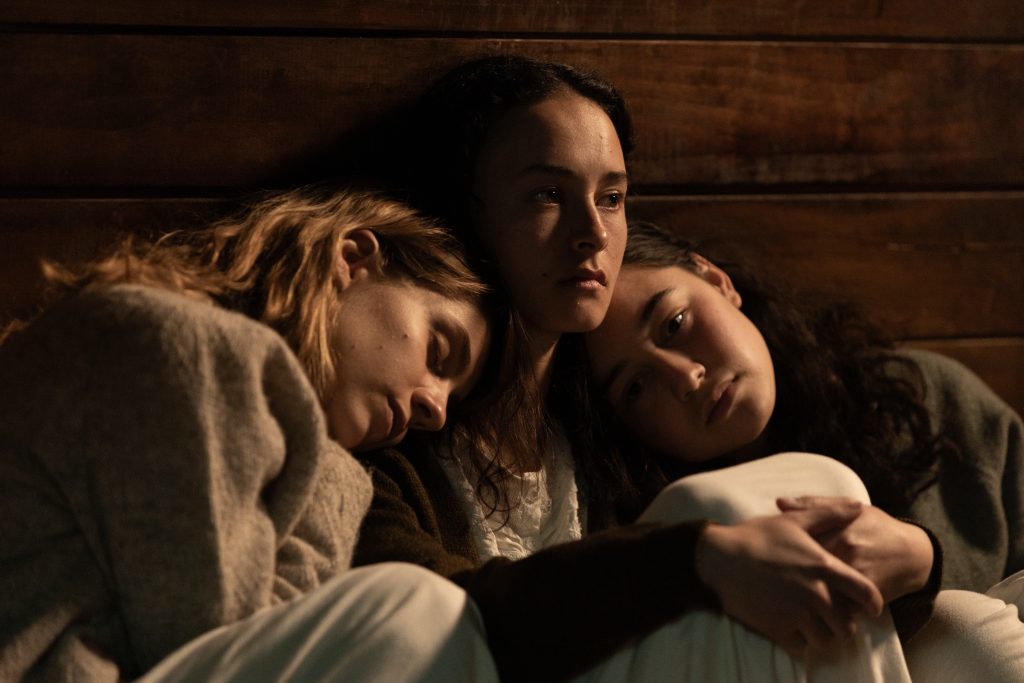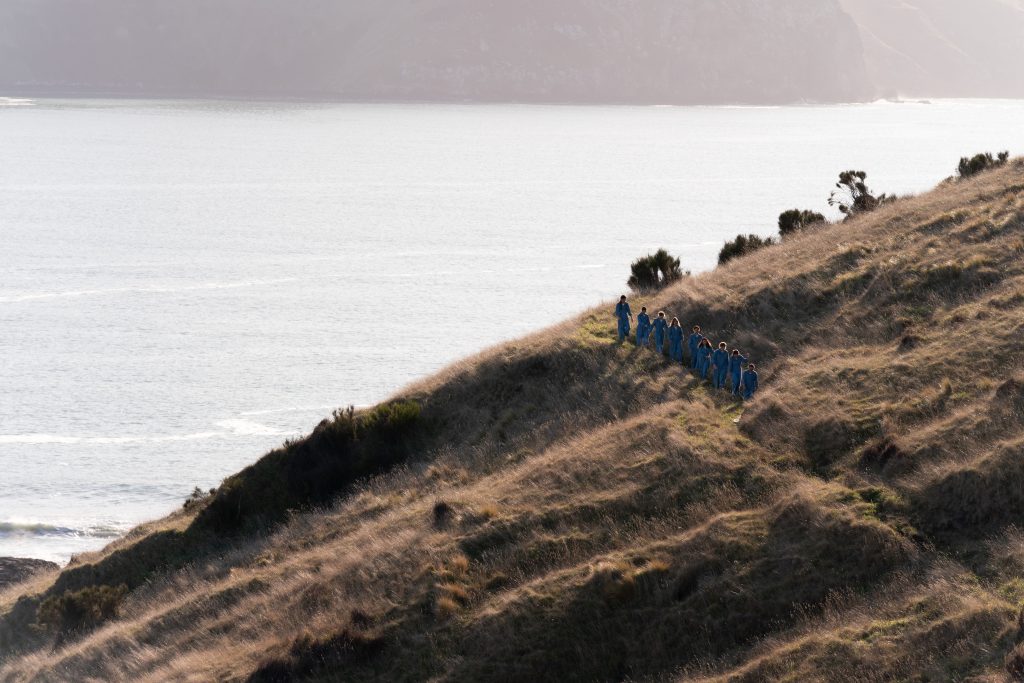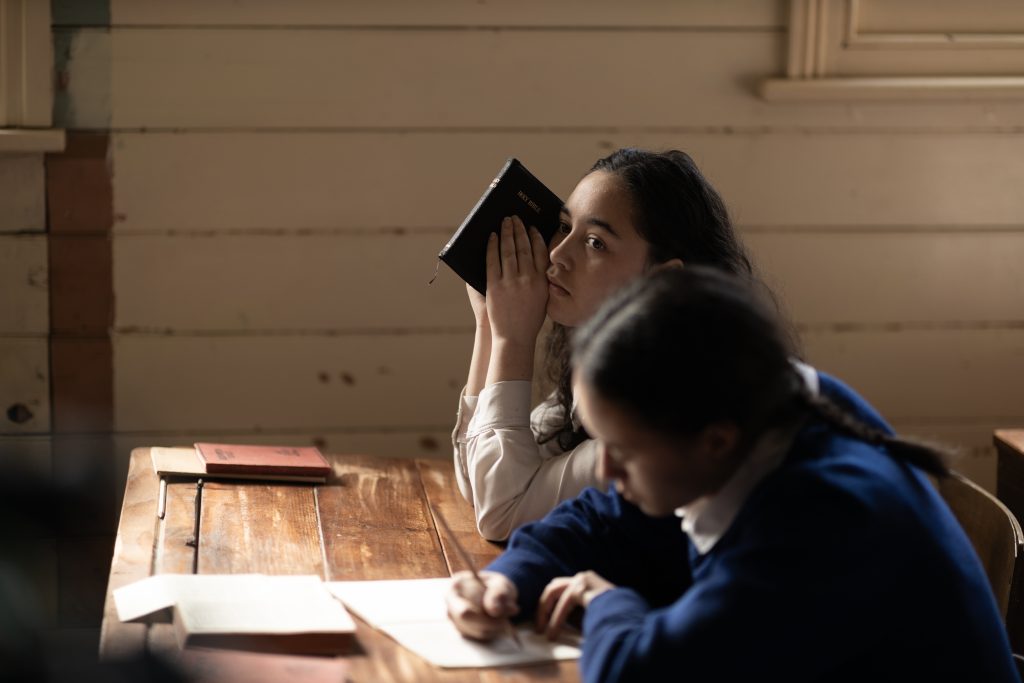By Alex McPherson
Bleak, unflinching, and deeply sensory, director Dea Kulumbegashvili’s “April” captures nightmarish realities flecked with vividly-rendered beauty and perseverance of the human spirit.
Set in a rural community within the country of present-day Georgia, we follow Nina (Ia Sukhitashvili), an OB/GYN who has devoted her life to the profession to the point of refusing to have personal ties outside of work in order to focus on providing for her patients. Her hardened empathy has clearly taken its toll on her psychologically, but Nina fully embraces her calling within a patriarchal environment that is seemingly always watching her.
We first meet Nina at the local hospital where she’s helping deliver a baby. Arseni Khachaturan’s camera films a (real-life) birth scene as the struggling mother and hospital staff do all they can to safely extract the child, but to no avail — the newborn dies soon afterwards.
Nina is blamed for the death by the mother’s resentful husband (Sandro Kalandadze), and Nina’s supervisor (Merab Ninidze) launches an investigation into what transpired. Nina convinces her fellow doctor and ex-lover, David (Kakha Kintsurashvili), to lead it. But despite supporting her, David is concerned by Nina’s actions outside of the hospital, where hushed threats against her are spreading among rageful, conservative men and the population at large.
The risks of the investigation go beyond Nina losing her job at the hospital. They extend to the home abortions she provides for impoverished residents of a nearby village, and her helping married women (some extremely young) access contraceptives, which are both taboo and hard to obtain.
While termination of pregnancies in Georgia is technically allowed up to 12 weeks, prevailing Orthodox Christian views bring intense shame to the procedure.Without transportation to larger cities like Tbilisi where the services are more readily available, Nina is the women’s only hope. Regardless of how the community depends on her, though, Nina’s safety and livelihood remain at the mercy of those wanting to punish her for “sinning” in the name of free will.
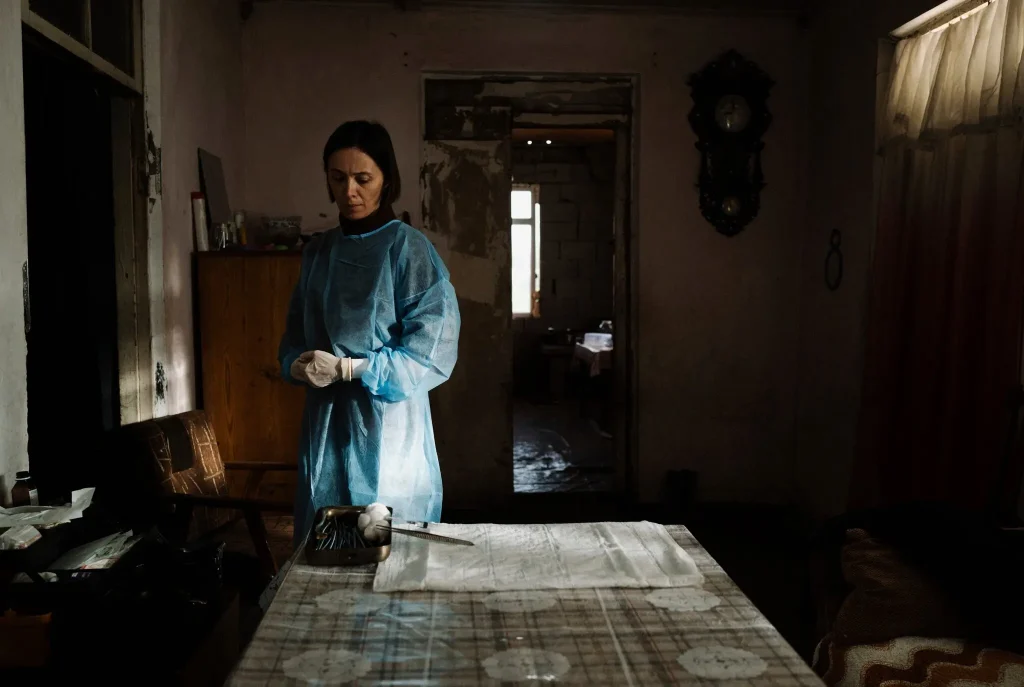
Going about her day-to-day life, with the weight of the investigation hanging over her, Nina is slowly being consumed by existential dread — partly visualized through frequent sightings of an alien-like, dried-out humanoid embodying the ultimate futility and depleted sense of self she’s developed over time in her profession. The combined weight of her responsibilities and the empathy she holds onto eats away at her mentally.
“April” forces us to confront injustice in a manner both agonizing and transfixing, marrying the horror of its narrative with lush lyricism that casts a stunning, albeit elliptical, spell. Kulumbeshgavili’s film is an experience that’s relentless in its brutality yet punctuated by moments of stark beauty and quiet bravery, immersing us in Nina’s point-of-view on both grounded and spiritual levels.
Indeed, “April” is a demanding watch. It can be excruciating in its unblinking depiction of birth and abortion, featuring taut sequences — captured in tense, volatile long-takes — that shiver with the potential for physical and emotional violence. Kulumbesgavili paints the film’s remote setting as an alternately gloomy and vivid landscape reflecting a symbolic tug-of-war between futility and hope.
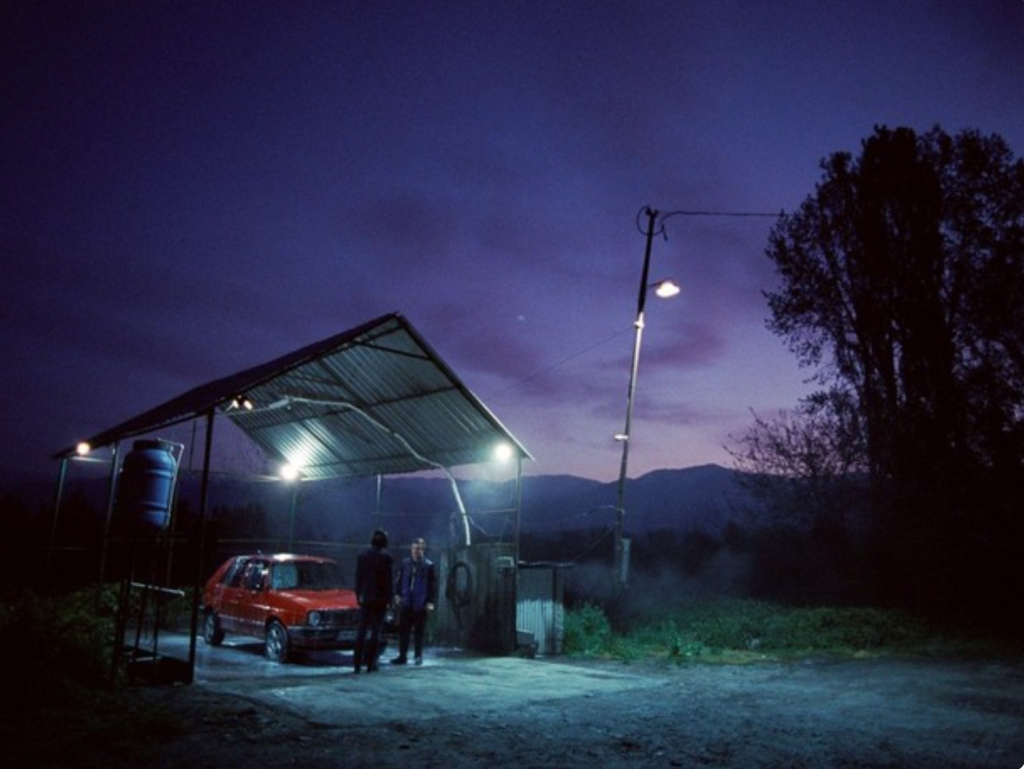
Brilliant, sunkissed poppy fields one moment become rapidly battered by the elements the next, never being able to escape the forces beyond their control. Neither can Nina’s patients protect themselves from the paralyzing stigma and eye of government. Neither can Nina protect herself from her own self-destructive pull to provide for those who could otherwise perish within futures not written by them.
Kulumbegashvili offers little comfort or reprieve from the film’s relentless sadness and uneasiness. Khachaturan’s cinematography manipulates perspective to a fascinating degree. It often puts us directly in Nina’s POV, whether during clinical operations in the hospital, nighttime drives looking for random, empty sex, or confrontational scenes in which we focus entirely on Nina’s face (hauntedly portrayed by Sukhitashvili) staring directly at the camera. In these scenes, it’s almost as if Nina looks into an abyss that, time and again, reverts to archaic, dangerous expectations of the kind of woman she should be.
Other shots flip the camera around with Nina offscreen — putting us in her shoes as we evaluate the judgments and barely-concealed threats levied against her by people, mostly men, who fail to understand her and what she believes in. At other times we seem to levitate above the ground, floating through nature. The film’s 4:3 aspect ratio furthers a sense of confinement and claustrophobia, as does the film’s incredible sound design — otherwise quiet scenes are often accompanied by Nina’s deep, heavy breaths that help fill out a memorably unsettling soundscape intimately connected with her mental state.
The film’s bravura sequence — an abortion filmed in one, extremely long take — takes a different approach. The camera positioned at the side, we see the patient’s midsection in the middle of the frame, her sister’s hand holding hers on the left side, and Nina’s hands working on the right. The scene is silent barring the occasional whimper from the patient, and Kulumbegashvili doesn’t sensationalize the ordeal. Rather, the eye is drawn to the left: one person comforting the other in a time of intense uncertainty and fear. A small but important gesture that means the world and, even though the situation down the road cannot end well, shows the necessity of compassion.
Some might fault “April” for its pacing and ambiguity, especially surrounding Nina’s backstory (implying vague trauma), and supernatural interludes that, daring though they are, momentarily break the film’s mesmerizing rhythms. So many elements combine so seamlessly here that we get a comprehensive picture without needing the creature to fill in thematic gaps. But it remains impactful as a distillation of Nina’s sense of self, of also enduring, as new days dawn after darkness, and as the seasons change.
“April” is a beautiful, uncompromising film singular in vision and firmly among the best-directed I’ve seen in recent memory.
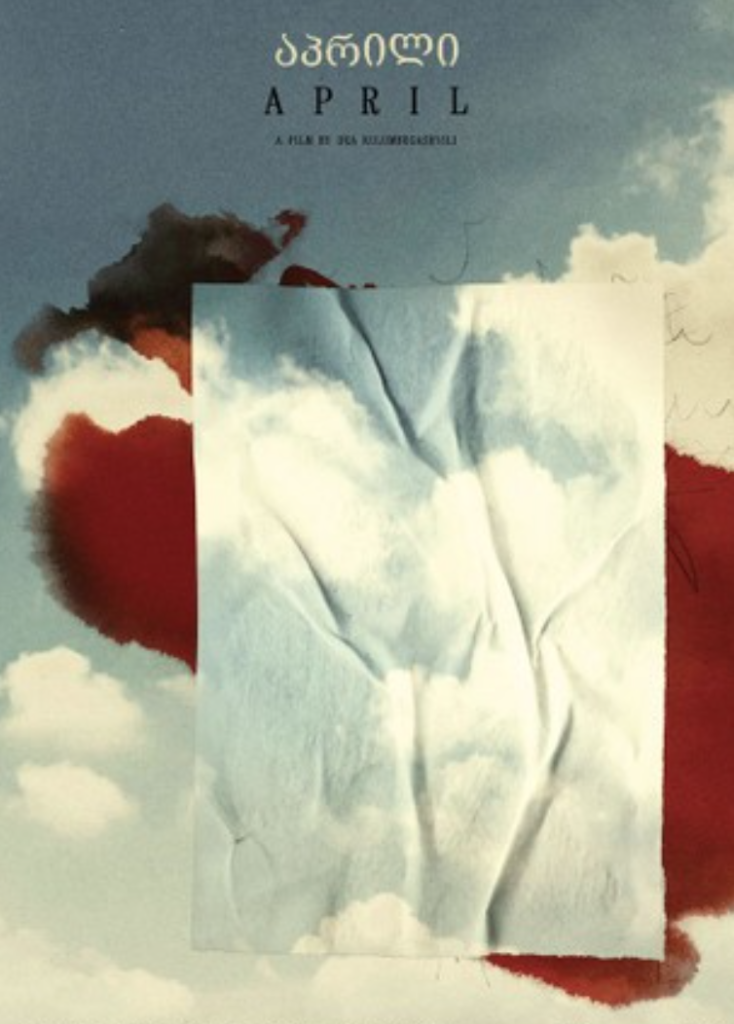
“April” is a 2024 drama directed by Dea Kulumbegashvili and starring Ia Sukhitashvili, Merab Ninidze, Kakha Kintsurashvili, and Ana Nikolava. Its runtime is 2 hours, 14 minutes, and it’s currently unrated. In Georgian with English subtitles. It screens at the Webster University Film Series May 30 – June 1. Alex’s Grade: A
Alex McPherson is an unabashed pop culture nerd and a member of the St. Louis Film Critics Association.

